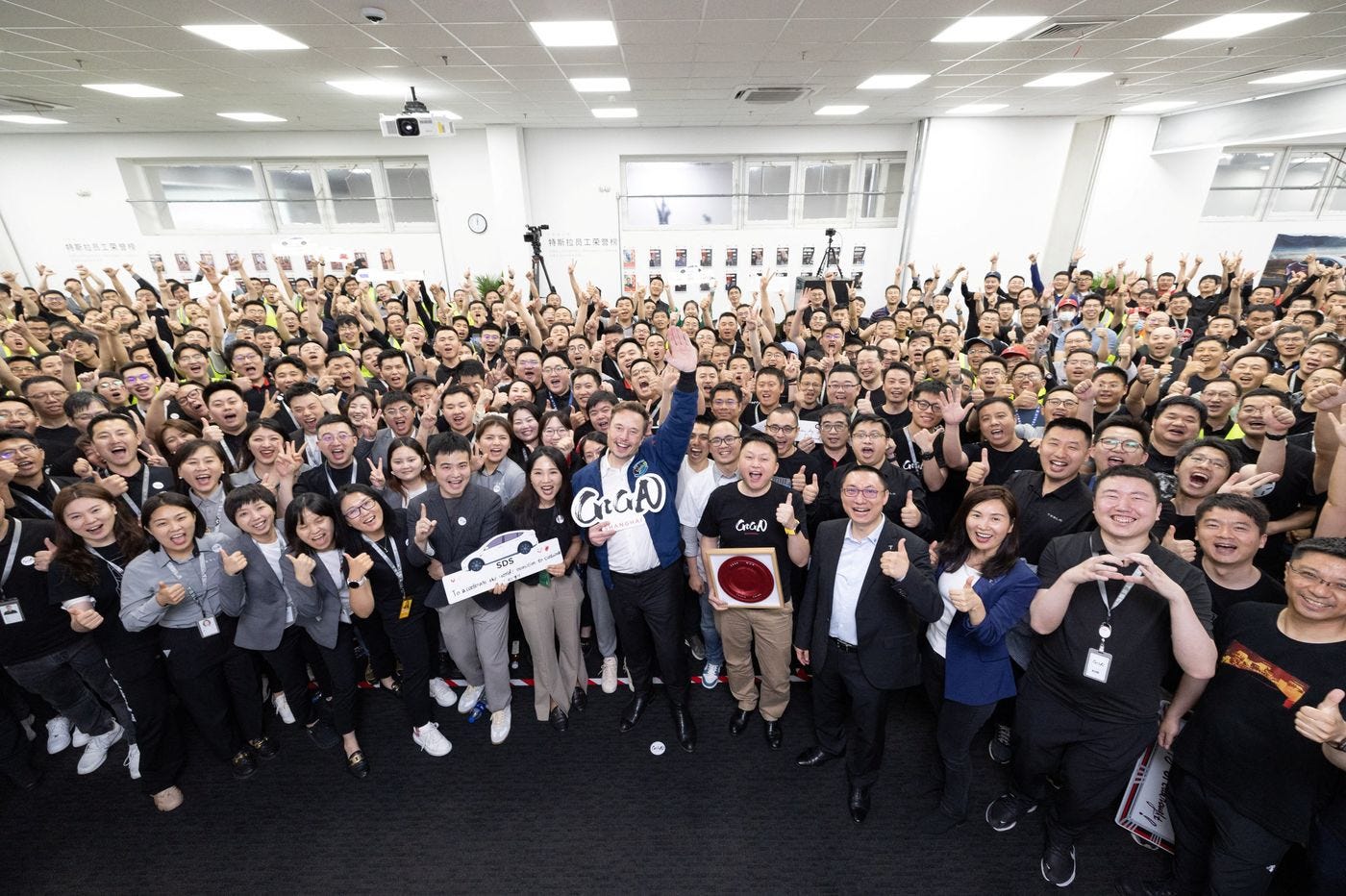Winkin’, Blinken, and Musk: America, China, and the “decoupling” myth
Human rights and labor rights mean little when big profits are at stake
Friends,
Officially, the United States and China are at sharp odds over everything from human rights to the future of Taiwan and support for Russia.
Officially, America is severing its economic interdependence with the second-largest economy in the world. We’re also using hard-hitting approaches to China, including trade sanctions. China has responded in kind, imposing its own trade restrictions and even raiding consulting firms’ offices.
Officially, the purpose of Secretary of State Antony J. Blinken’s visit to Beijing last week and his brief meeting with Xi Jinping — his first since he became secretary of state — was to warn China against further provocation.
But unofficially — behind the policies and stiff diplomacy, at the juncture of money and greed — the two economies are drawing closer.
Blinken’s visit garnered all the attention, but in recent months a parade of American CEOs and Wall Street titans — including Bill Gates, JPMorgan Chase’s Jamie Dimon, and Apple’s Tim Cook — have journeyed to China to solidify relations and expand business. Human rights be damned.
A few weeks ago, Elon Musk went to China. In two days, Musk held more top-level Chinese meetings than Biden administration officials had all year, including with China’s Foreign Minister, Qin Gang; Shanghai’s influential Communist party chief, Chen Jining; and Vice Premier Ding Xuexiang, who sits on the seven-member Politburo Standing Committee and is a confidant of Xi.
After his meeting with the foreign minister, Musk said the United States and China were “intertwined” and that Tesla opposed “decoupling and breaking [supply] chains.”
As if to emphasize the point, Musk met with Zeng Yuqun, chairman and founder of CATL, a Chinese EV battery manufacturer and Tesla supplier.
Musk then visited Tesla’s giant Shanghai auto plant. It’s Tesla’s largest outside the United States and now accounts for more than half the company’s global output.
A mass-market version of Tesla’s Model 3 sedan is being trial-produced there. Tesla plans to build a second factory in Shanghai to produce its Megapack energy-storage product.
America decoupling from China? Hello?
Exports of Tesla cars from its Shanghai factory to Europe and Asia helped China surpass Japan as the world’s largest vehicle exporter in the first quarter of this year. A supply chain built around Tesla now feeds a wave of EV makers there.
Musk is not known for holding his American workers in high regard. He has repeatedly refused to allow them to unionize, in violation of American labor laws. He ignored COVID restrictions and forced employees to report for work at Tesla’s plant in Fremont, California. Recently, he fired most Twitter employees.
But Musk is rhapsodic about his Chinese workers. Before leaving the giant Tesla factory, he addressed a crowd of them (according to a video released on social media by Tesla China).
“Thank you for being here late at night,” he said (as though the workers had freely chosen to be there). He went on:
“I would very much like to congratulate you on the amazing work that you have done. It’s been incredibly impressive how you have been able to overcome so many difficulties and so many challenges ... I just want to let you know, it warms my heart.”
Musk then tapped his chest and made a fist pump and then a “heart” sign with his hands, saying: “I tell people throughout the world, the cars we produce here are not just the most efficient production, but also the highest quality.”
Last year, Musk praised the work ethic of his Chinese employees, noting in an interview with the Financial Times that they burned “the 3 a.m. oil.” Of course they did. Chinese workers’ labor protections are barely enforced. They work the hours they’re told to work.
In April, Tesla’s Shanghai factory workers were so enraged about arbitrary cuts to their performance bonuses that they risked their jobs and took to Twitter — owned by Musk and blocked in China — to complain. In February, a worker at the plant was killed in a mechanical accident that the local government attributed partly to lax oversight.
Bottom line: Officially, America will continue to fulminate over China’s human-rights abuses and aggressive moves, threatening more “decoupling” of the two economies.
Unofficially — unless China is foolish enough to mount a full-scale invasion of Taiwan — the decoupling won’t happen, because American corporations want access to China’s huge market and its cheap and compliant manufacturing workers.
Foreign policy is for the cameras. When it comes to the real connections between China and the United States, profits speak louder than policy.




Something needs to be done to bring corporations under control. The greediness of most CEOs and the treatment of many workers is shameful worldwide
We have let corporations rule over everything else. They nearly run our government. Congress is so beholden to giant corporations that it can't work together to do anything that benefits the American people. Even when Congress manages to agree on legislation, protections, loopholes, subsidies and other benefits to corporations have to be included, otherwise there's no deal. Maybe there should be some punishment for corporations who negotiate with governments to the detriment of the US government. Gee, maybe we should tax them.